Sitting here in a London Starbucks on the day of the most fateful vote in recent British history, I wonder what Ross Parker and Hughie Charles would make of the controversy over “Brexit.” I suspect that the authors of the famous 1939 song “There’ll Always Be An England” would be puzzled, not to say alarmed, over the wave of establishment sentiment advocating that Britain remain in the European Union.
“There’ll always be an England,” these songsters wrote, “and England shall be free/if England means as much to you/as England means to me.”
But the question is: Does it? Does England mean as much to the Remainders (as I like to denominate those advocating continued subjugation to Brussels) as to those keen on reasserting British sovereignty? The words “free” and “freedom” are repeated several times in “There’ll Always Be An England.” That’s the theme, the hope, the conviction: that Britain — even in the dark days when subservience to that earlier form of European Union in the 1930s and 1940s seemed likely — would triumph because of its native love of freedom.
How do things look now? I don’t think I have ever seen Britain more divided. Most of the toffs are firmly among the Remainders.
I was in a posh bookshop yesterday and listened in as the proprietor and a customer assured each other of their fine feelings on the question of Brexit. Those advocating it were angry. They were selfish, too, since the real issue for those advocating Brexit was immigration, and of course only jingoistic throwbacks could dispute the fact that mass immigration was simply a fact of modern life. The customer said that perhaps he should make a large purchase now, since if Brexit happened, the pound would collapse. Yes, agreed the proprietor, it would be an economic catastrophe. Fortunately, they agreed, the winds were blowing in the direction of the Remainders.
Are they? The murder of Jo Cox, a Labor MP, by a deranged 52-year-old psychiatric patient last week sent the polls spinning in the direction of the Remainders. Why? Because the press spun the tragedy as the action of a nativist Brexiteer. The truth is that Thomas Mair, Cox’s assailant, had absolutely nothing to do with the campaign for Brexit. It was a cynical exploitation by the establishment to capitalize on a tragedy for their own political benefit.
You saw something similar when the registered Democrat and Islamic extremist Omar Mateen went on a shooting rampage in an Orlando nightclub last week, and was instantly seized upon as an advertisement for “gun control.”
Still, I wouldn’t be too sure that the Remainders are going to triumph in this referendum. Over the last 48 hours, sentiment seems to be shifting back toward Brexit.
The class division in the debate is fascinating. The establishment, beginning with Prime Minister David Cameron, is firmly, not to say irrationally, in the Remain camp. On his side are the huge corporations, the banks, and all the multinational entities whose lives are barely affected by the morass of intrusive regulation imposed on British business by Brussels. They are large enough to outsource all the compliance requirements, while small or new enterprises stagger under the burden. From the point of view of the establishment, membership in the EU is a good thing if only because it keeps the field clear of rivals.
The Brexiteers are a mixed lot. Their ranks include readers of tabloids like The Daily Mail and The Sun, but also articulate spokesmen for British sovereignty like Boris Johnson, the former mayor of London; Daniel Hannan, a conservative member of the European Parliament; and Michael Gove, the lord chancellor.
In an interview in The Telegraph this morning, Johnson said that the vote was more important than his political career because at stake was the future of Britain as a free and democratic polity:
This is an absolute turning point in the story of our country, because … if we go on with being enmeshed in the EU it will continue to erode our democracy.
For most of us cis-Atlantic commentators, the whole “European Project” is a murky enterprise. What is it really about? Tearing down artificial trade barriers? Wasn’t that the public rationale for the creation of the euro? Why have the inconvenience of francs and deutschmarks when a single currency would make business much more “rational”? (But what happens, you ask, when you add the lira and drachma into the mix? Was that rational?) Is economic “unity” what the European Union is fundamentally about?
Not really. Everyone knows this, but somehow the other answers seldom surface. Why?
Remember Edgar Allan Poe’s story The Purloined Letter? The operative conceit of that classic in the literature of detection is that if you wish to hide something, your best bet may be the brazen option: leave it lying about for all to see. The Prefect of the Paris Police couldn’t see what the mastermind Dupin instantly grasped: many things “escape observation by dint of being excessively obvious.” Thus it was with the letter purloined from the royal apartments. It was hidden in plain sight, in a card rack by a writing desk in the perpetrator’s apartment, but the Prefect and his minions couldn’t see what was right beneath their noses.
So where is C. Auguste Dupin when you need him? Consider Europe: not the geographical mass, but the idea — the “European Project” that was the brain child of Jean Monnet and other socialistically inclined politicians in the 1950s. What’s the most obvious thing about Europe today — apart, that is, from its staggering debt and moribund economy? What would M. Dupin say?
Before we speculate about that, let’s minute a few historical markers. The idea behind the European Union was to create a “United States of Europe” that would consign intra-European military conflict to the dustbin of history. (Really, of course, what has preserved the peace in Europe these past 60 years is NATO, i.e., the U.S. military, under whose defense umbrella Europe has sheltered, but we may leave that to one side.) Preventing intra-European wars was one goal of the European Project.
Another, which was not so frequently acknowledged, was to forge an economic and political entity that could challenge the hegemony of the other United States. It took a while to get going. Impediments like patriotism and allegiance to national (versus supranational) interests kept breaking in.
Things didn’t really pick up steam until the Maastricht Treaty came on line at the end of 1993. Then there was the introduction of the single European currency, the euro, in 2002. That was a prelude to a continent-wide Constitution. Unfortunately, those old selfish nationalist interests reared their parochial heads again in the mid-2000s, when a European Constitution was offered to the voters of Europe to approve. Mirabile dictu: voters both in France and the Netherlands declined their ticket to EUtopia. This temporary setback was addressed by the Treaty of Lisbon in 2008. This was essentially the same document as the European Constitution, but rewritten to be impenetrable to ordinary readers.
And what does the Lisbon Treaty provide for? Leaders who are appointed, not elected; leaders who are accountable to each other, not the people. Rule, that is to say, by self-perpetuating elites who can mostly dispense with the inconvenience of the consent of the governed. The consent of those who govern is so much easier to negotiate.
What does this mean in practice? Here’s a taste. Back in 2012, José Manuel González-Páramo, a director of the European Central Bank, declared:
We cannot completely delegate governance to financial markets … [The euro] cannot depend solely on the opinions of ratings agencies and markets. … This underscores my central point that a much more comprehensive approach to economic governance is now the priority for the euro area. And this means more economic and financial integration for the euro area, with a significant transfer of sovereignty to the EMU [Economic Monetary Union] level over fiscal, structural, and financial policies [my emphasis].
“A significant transfer of sovereignty”: What is sovereignty? It is the political power to determine how one wishes to live.
At bottom, the European Project is an effort to seize power (“transfer” sounds much nicer though, doesn’t it?) from local and national entities and invest it in a central authority. An early step on this road is what Mr. González-Páramo calls “integration,” i.e., what the Germans in the late 1930s called “Gleichschaltung,” bringing all aspects of life into harmony with certain central dictates.
“Gleichschaltung” is not the only ominous German word one hears about Europe these days. Another is “Anschluss.” Back in 1938, that’s what happened when Germany suddenly absorbed Austria.
A couple of years ago when an earlier chapter in this saga was unfolding, I was chatting with an Italian friend, a former Italian senator, who employed the word to describe the ascension of Mario Monti to the Italian premiership in 2012. “Super Mario” was technically appointed by the Italian president; in reality, he was foisted upon Italy by the European Union. As it happens, that same day Lucas Papademos was sworn in as Greece’s prime minister.
How did that happen? Well might you ask. That day, we received a plaintive email from a journalist friend in London:
Today, two modern European democracies installed prime ministers who had been elected by nobody. This is what we have come to. It is roughly the equivalent of the federal government stepping in to appoint an unelected governor of California when the state went broke — which is beyond inconceivable. Pray for us.
So long as Britain remains tethered to the European Union, Brussels will be able to impose all the regulations it wants via other treaties. Ultimately the debate over Brexit is a debate over sovereignty, which is a fancy word for freedom. Today’s vote is historic because on it rests the future freedom of Great Britain.
Will it be absorbed still further into the (more or less) soft bureaucratic totalitarianism of the European Union, gradually extinguishing its common law traditions, or will it reassert its prerogatives of self-rule? My record as a political prognosticator has been ostentatiously poor, yet I venture, with some trepidation, to say that my reading of the tea leaves suggests that the spirit of independence has not been entirely bred out of the British electorate.
There are apparently no exit polls for the referendum, so we won’t know until very late tonight whether (to end with another song) Britain will still be able to sing “Rule, Britannia” and its famous refrain “Britons never, never, never will be slaves.” That’s not the fate that David Cameron, to say nothing of his Continental masters, have in mind, but today, perhaps for the last time in a generation, the British voters have a choice.

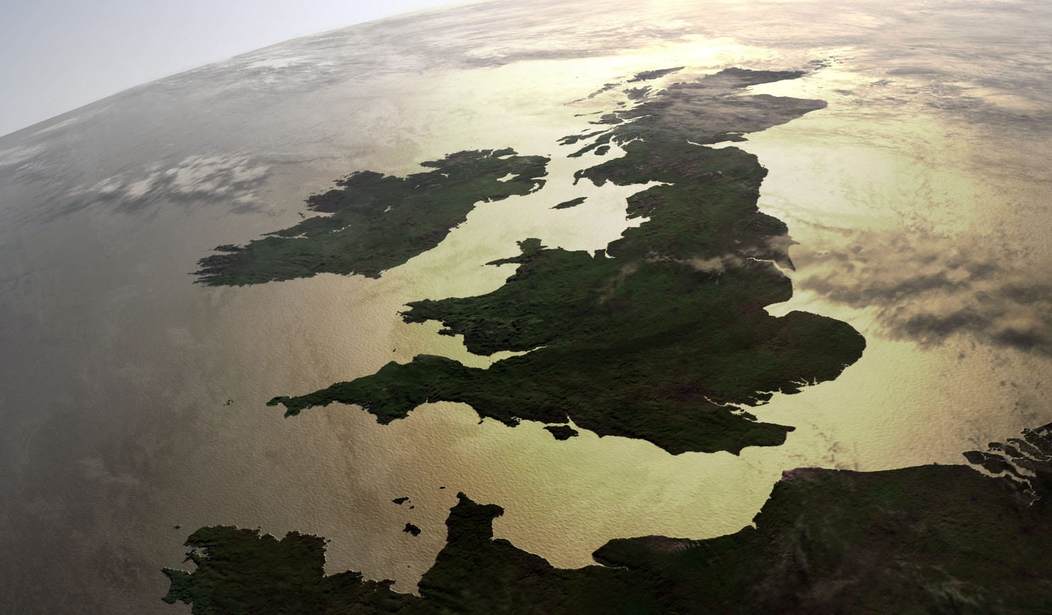
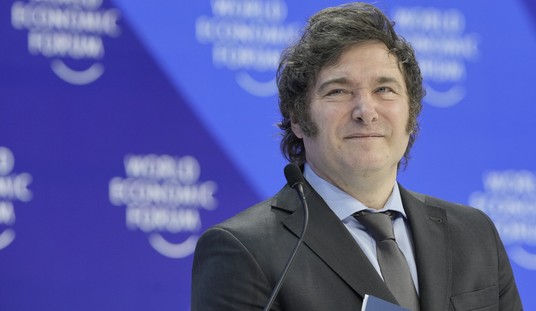

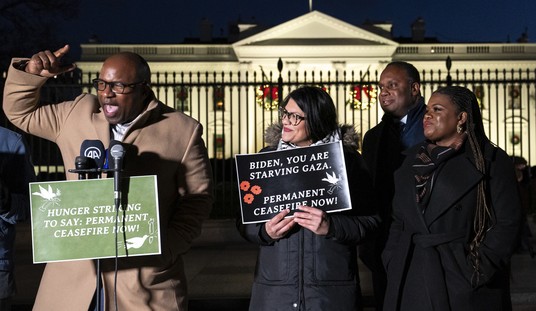

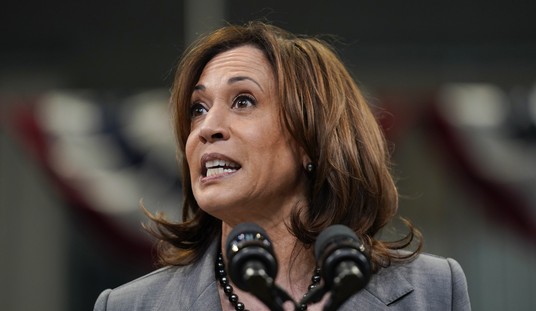
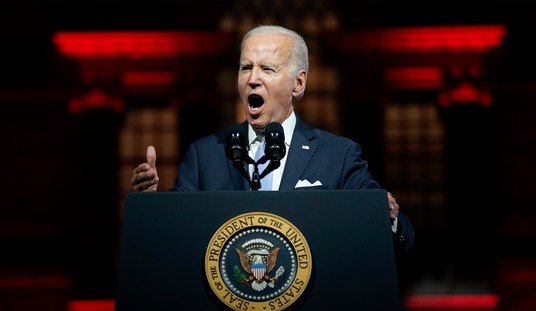
Join the conversation as a VIP Member